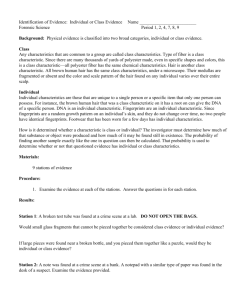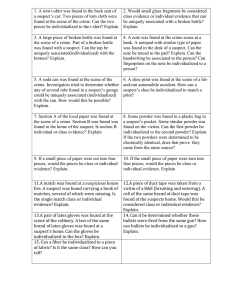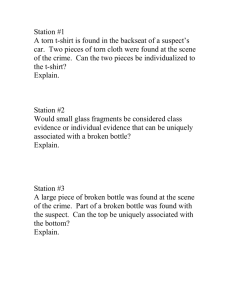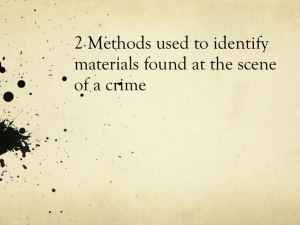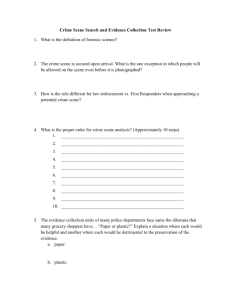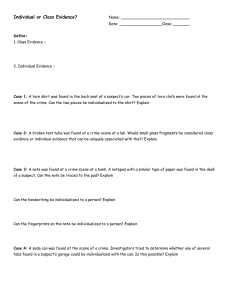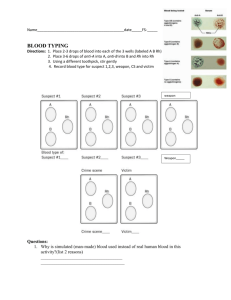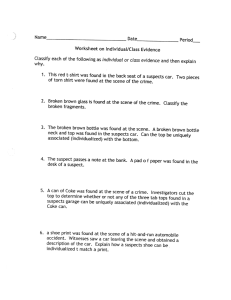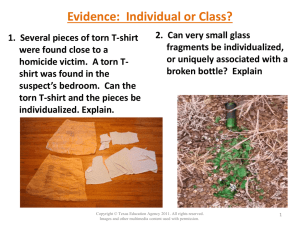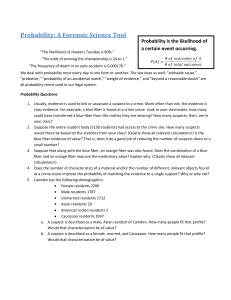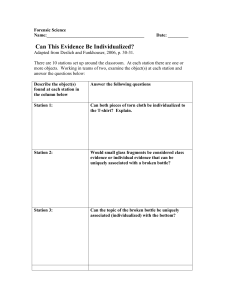Class vs. Individual Evidence Worksheet
advertisement
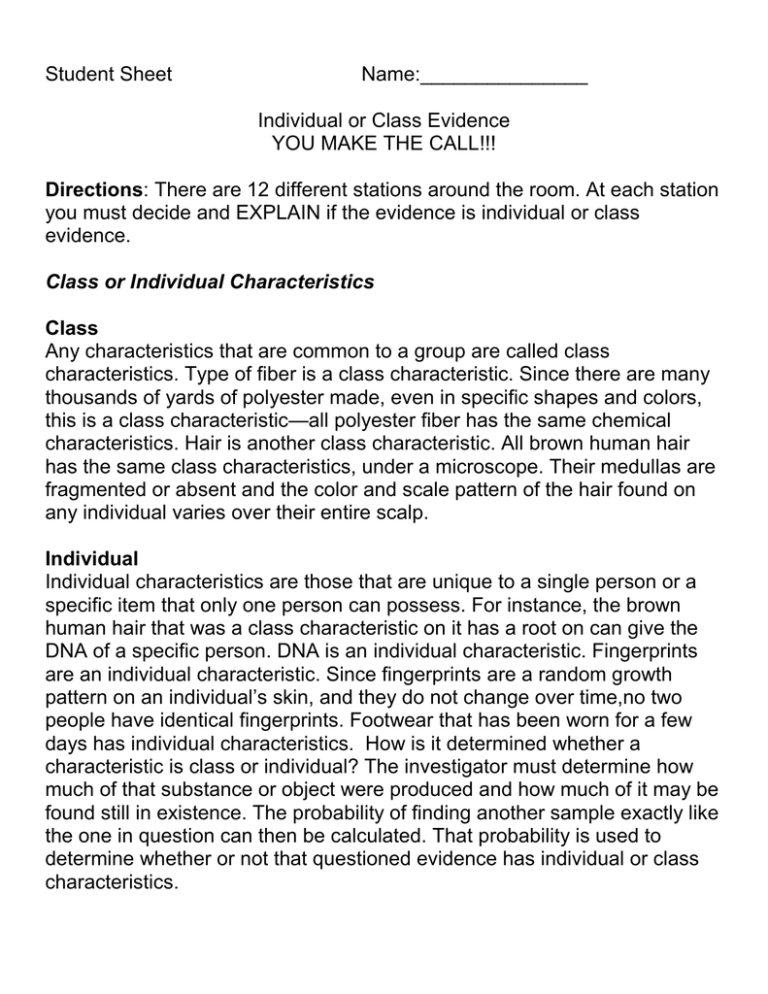
Student Sheet Name:_______________ Individual or Class Evidence YOU MAKE THE CALL!!! Directions: There are 12 different stations around the room. At each station you must decide and EXPLAIN if the evidence is individual or class evidence. Class or Individual Characteristics Class Any characteristics that are common to a group are called class characteristics. Type of fiber is a class characteristic. Since there are many thousands of yards of polyester made, even in specific shapes and colors, this is a class characteristic—all polyester fiber has the same chemical characteristics. Hair is another class characteristic. All brown human hair has the same class characteristics, under a microscope. Their medullas are fragmented or absent and the color and scale pattern of the hair found on any individual varies over their entire scalp. Individual Individual characteristics are those that are unique to a single person or a specific item that only one person can possess. For instance, the brown human hair that was a class characteristic on it has a root on can give the DNA of a specific person. DNA is an individual characteristic. Fingerprints are an individual characteristic. Since fingerprints are a random growth pattern on an individual’s skin, and they do not change over time,no two people have identical fingerprints. Footwear that has been worn for a few days has individual characteristics. How is it determined whether a characteristic is class or individual? The investigator must determine how much of that substance or object were produced and how much of it may be found still in existence. The probability of finding another sample exactly like the one in question can then be calculated. That probability is used to determine whether or not that questioned evidence has individual or class characteristics. Station 1: A torn T-shirt was found in the back seat of a suspect’s car. Two pieces of torn cloth were found at the scene of the crime. Can the two pieces be individualized to the T-shirt? Explain. Station 2: A broken test tube was found at a crime scene at a lab. Would small glass fragments be considered class evidence or individual evidence that can be uniquely associated with that? Explain. Station 3; A note was found at a crime scene at a bank. A notepad with a similar type of paper was found in the desk of a suspect. Can the note be traced to the pad? Explain. Can the handwriting be associated to a person? Can fingerprints on the note be individualized to a person? Explain. Station 4: A soda can was found at the scene of a crime. Investigators tried to determine whether any of several tabs found in a suspects garage could be uniquely associated (individualized) with the can. How would this be possible? Explain. Station 5: A shoe print was found at the scene of a hit and run automobile accident. How can a suspect’s shoe be individualized to match a print? Explain. Station 6: The Midlands Section of the Omaha World Herald was found at the scene of a crime. The Sports Section was found in the home of the suspect. Is the Sports Section individual or class evidence? Explain. Station 7: Some powder was found in a plastic bag in a suspect’s pocket. Some similar powder was found on the victim. Can the first powder be individualized to the second powder? Explain. If the two powders were determined to be chemically identical, does that prove they came from the same source? Explain. Station 8. If a small piece of paper were cut into four pieces, would the pieces be class or individual evidence? Explain. Station 9: If the same small piece of paper were torn into four pieces, would the pieces be class or individual evidence? Explain. Station 10: A match was found at a suspicious house fire. A suspect was found carrying a book of matches, several of which were missing. Is the single match class or individual evidence? Explain. Station 11: A piece of duct tape was taken from a victim of a B & E (breaking and entering). A roll of the same brand of duct tape was found at the suspect’s home. Would this be considered class or individual evidence? Explain. Station 12: A pair of latex gloves was found at the scene of a robbery. A box of the same brand of latex gloves was found at a suspect’s home. Can the gloves be individualized to the box? Explain.
